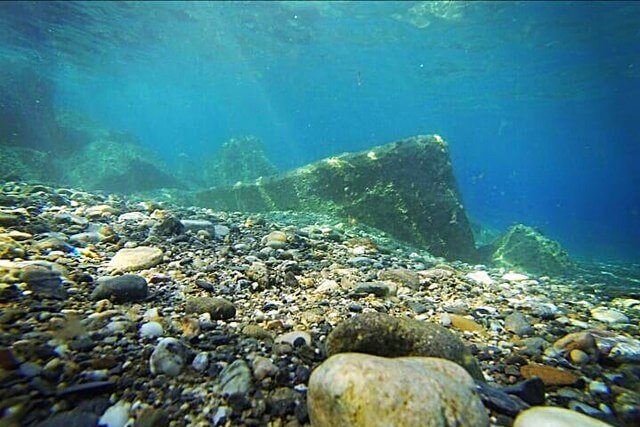
Gerard Barron, CEO of The Metals Company, staunchly defends his company’s deep-sea mining operations, asserting minimal environmental impact.
The firm employs remote-controlled machines, akin to trucks, to extract rocks from the seabed, subsequently crushing and processing them to yield vital minerals—cobalt, nickel, copper, and manganese—critical for battery production.
Currently in the testing phase, the Canadian company eyes authorisation for commercial mining in international waters of the north Pacific by late 2025. However, it is presently barred by the International Seabed Authority (ISA), the UN entity overseeing international waters.
Nevertheless, a forthcoming ISA meeting aims to finalise regulations that could potentially greenlight deep-sea mining, with a decisive vote anticipated within 24 months.
Amidst this regulatory push, geopolitical divides emerge. While some 30 nations advocate maintaining the ban, citing environmental concerns, others, including China, advocate for its repeal.
Norway’s recent decision to permit future deep-sea mining in its territorial waters adds impetus to the debate, with the US contemplating a similar move, spurred by concerns over mineral supply chain security.
Unlike more invasive methods, such as trenching, The Metals Company’s approach—focused on harvesting polymetallic nodules—minimises disruption to marine ecosystems, contends Barron. He contrasts this with terrestrial mining, particularly nickel extraction in Indonesia and the Philippines, which has long drawn criticism for its environmental toll on rainforests.
However, environmental organisations like the World Wide Fund for Nature (WWF) and the European Academies Science Advisory Council (EASAC) caution against deep-sea mining’s potential ecological fallout.
The WWF advocates for investment in waste processing and recycling to mitigate the need for new mining sites.
“If the industry proceeds, the intensity and methods of deep seabed mining could destroy entire habitats and species,” says Kaja Loenne Fjaertoft, a marine biologist and senior advisor for sustainable oceans at the WWF.
“Many species living in the deep sea are found nowhere else. Disturbances in just one mining site could wipe out entire species.”
She adds: “As well as the direct destruction of ecosystems when minerals are mined, major damage and disturbance would likely arise from light noise and sediment pollution.”
The EASAC underscores the irreparable damage to marine life wrought by mining operations.
“It’s unavoidable that the actual process of mining is physically disruptive, and would more or less wipe out any biota [animals and plants] in the areas directly mined,” says the EASAC’s environment director Prof Michael Norton.
“There’s also a chance of second-level effects on the adjoining sea beds or adjoining water column.”
Prof Norton also questions the need for deep-sea mining in the first place. “It produces a lot of manganese, which we’re not short of. It produces, in some cases, cobalt and nickel, which are actually used in some of the clean energies, for instance, batteries, but they’re not rated by the European Commission as being particularly at supply risk.”
The target for The Metals Company’s mining endeavor is the Clarion-Clipperton Zone, an expansive region spanning 4.5 million sq km between Hawaii and Mexico.
CEO Mr. Barron contends that mining in this area would generate significantly less environmental disruption than land-based operations, citing the environmental concerns associated with nickel extraction in Indonesia and the Philippines, where rainforests suffer adverse impacts.
“The area we’re focused on, where these rocks sit, is the abyssal zone,” says Mr Barron. This perpetually dark zone is 3,000m to 6,000m (10,000ft to 21,000ft) below sea level.
“Here there’s zero flora. And if we measure the amount of fauna [animal life], in the form of biomass, there is around 10g per square metre. That compares with more than 30kg of biomass where the world is pushing more nickel extraction, which is our equatorial rainforests.”
——————————————————————————
At Natural World Fund, we are passionate about stopping the decline in our wildlife.
The decline in our wildlife is shocking and frightening. Without much more support, many of the animals we know and love will continue in their decline towards extinction.
When you help to restore a patch of degraded land through rewilding to forests, meadows, or wetlands, you have a massive impact on the biodiversity at a local level. You give animals a home and food that they otherwise would not have had, and it has a positive snowball effect on the food chain.
We are convinced that this is much better for the UK than growing lots of fast-growing coniferous trees, solely to remove carbon, that don’t actually help our animals to thrive.
This is why we stand for restoring nature in the UK through responsible rewilding. For us, it is the right thing to do. Let’s do what’s right for nature!
Donate today at https://naturalworldfund.com/ and join in the solution!

